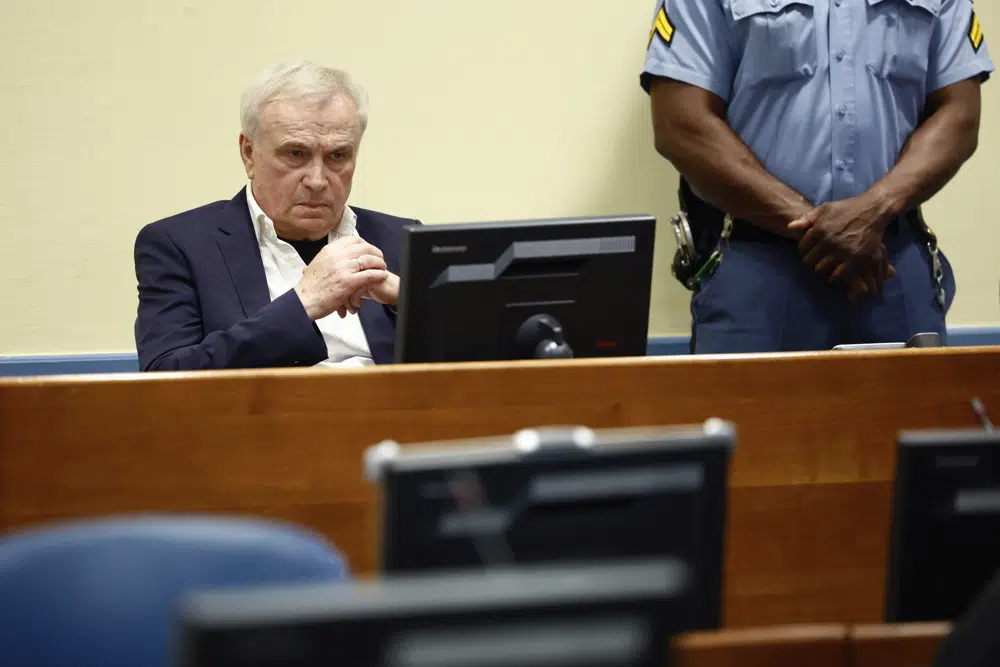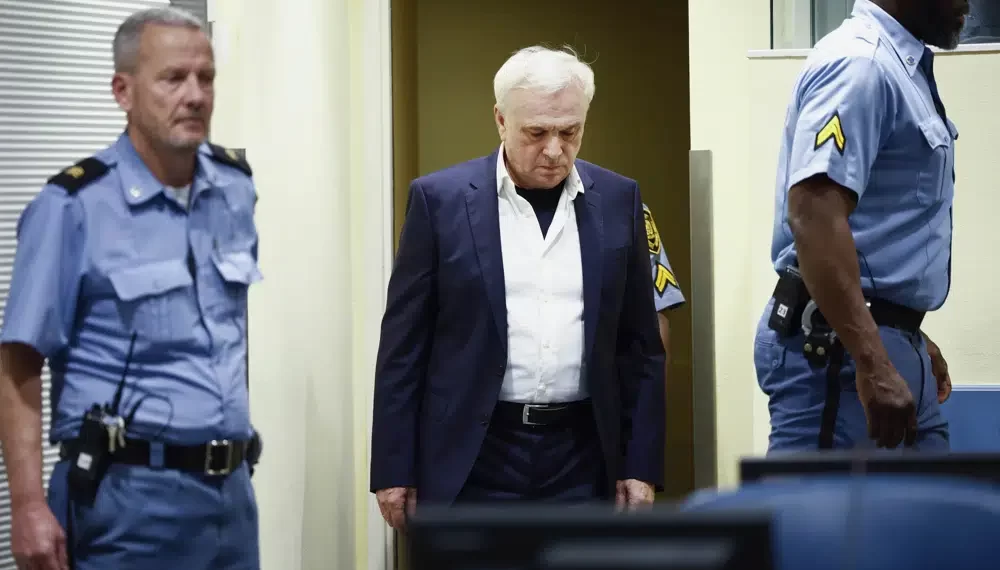The United Nations Appeals Court judges have significantly raised the sentences of two Slobodan Milosevic partners. The court holds them accountable for their involvement in war crimes committed throughout Bosnia and in one other city in Croatia, as part of a coordinated criminal scheme that pushed out non-Serbs from some areas during the Balkan wars.
Jovica Stanisic and Franko Simatovic’s exoneration of their participation in the criminal scheme were quashed by the International Residual Mechanism for Criminal Tribunals appeals court, and their prison terms have been increased from 12 to 15 years.

The Presiding Judge Graciela Gatti Santana stated that, the two men, who are both now in their 70s, “shared the intent to further the common criminal purpose to forcibly and permanently remove the majority of non-Serbs from large areas of Croatia and Bosnia and Herzegovina through the commission of the crimes charged in the indictment.”
The appeals court’s decision ended the longest-running war crimes investigations, which dates back to the early 1990s Balkan Wars.

In 2006, Slobodan Milosevic passed away in his cell before a verdict could be pronounced on his crimes, for allegedly inciting violent conflicts that broke out, as Yugoslavia fell apart. Serge Brammertz, Head of the Mechanism’s Prosecution, praised the decision and described the verdict as “really important.”
Officials from Belgrade who have been found guilty of their involvement in a joint criminal operation are solely subject to this decision, he claimed. As Gatti Santana pronounced the sentence, neither Stanisic nor Simatovic expressed any regret of what they did. Simatovic observed the session via a video link from a U.N. detention facility while Stanisic appeared in court.
Gatti Santana hailed the appeals decision as a “milestone” for the court that handles cases from the now-defunct U.N. war crimes tribunals, for the former Yugoslavia and Rwanda because it was the last case involving war crimes from the wars that broke out in the early 1990s.

In the Bosnian town of Bosanski Samac in 1992, Serb armed groups committed massacres and other crimes. Stanisic and Simatovic were found guilty for aiding and abetting to those crimes two years ago, although, they were cleared of other charges. Both of those conclusions were overturned by the appeals panel, and their prison terms have been increased.
Given the numerous requests for the prosecution of those responsible for the atrocities committed in the ongoing Russia invasion in Ukraine, the length of the cases highlight the difficulty of establishing war crimes in international courts.
The only Serbian government representatives who have been found guilty by a U.N. court of participating in atrocities in Bosnia are Stanisic, a Former Head of Serbia’s State Security Service, and Simatovic, a top intelligence agent with the service.

According to Brammertz, war crimes cases are going to persist in the Balkans, because so many victims and survivors remain without compensation. “For us, it was the last case,” Brammertz said to the media. “However, we are aware that hundreds of cases still require domestic prosecution.”

The Yugoslav warfare were a series of distinct but interethnic warfare, independence wars, and insurrections, that occurred in the SFR Yugoslavia between 1991 and 2001. The division of Yugoslavia into six independent nations, that matched the six states that previously made up Yugoslavia; Slovenia, Croatia, Bosnia and Herzegovina, Montenegro, Serbia, and North Macedonia, formerly known as Macedonia began in mid-1991. Conflicts preceded and followed the breakup.
READ ALSO:South Sudan Is Mine Infested, Years After Civil War























